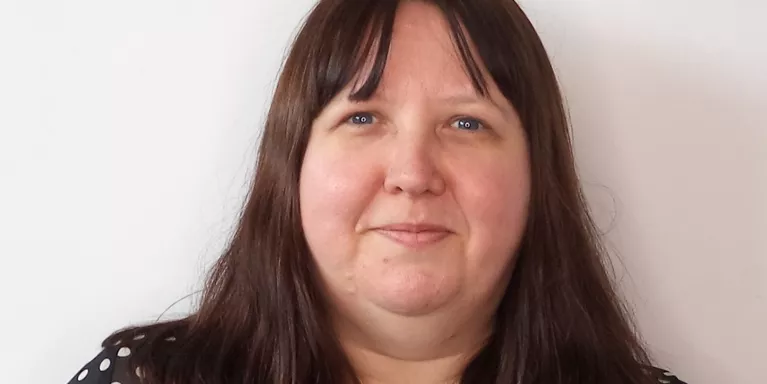What does grief feel like?
Grief can be difficult and stressful. Nearly everyone goes through it at some point in their lives. But it can be difficult to predict how we might react to a loss.
What emotions might I have while grieving?
This section explains some feelings and experiences you may have after losing someone.
But remember that there are lots of different ways in which we might grieve. And many factors that can affect our grief. These include the relationship we had with the person who died, our previous experience of grief, and the support we have around us.
So if you don't experience these emotions, it doesn't mean you're grieving in the wrong way. How you grieve is personal to you:
Sadness or depression
You may feel low, tearful or isolated. You might spend time reflecting on the past. Or you might find it hard to think about the future, or feel like things are hopeless. In some cases, this might include experiencing suicidal feelings.
Our pages on depression and coping with suicidal feelings have advice that may help.
Numbness, denial or disbelief
You may find that you feel numb or in a state of shock. This is natural. It can help us to process what has happened at a pace that we can manage, and not before we're ready.
But it can be a problem if you only feel numb, and you don't experience any other feelings. This could mean you feel 'stuck' or 'frozen'.
Grief is a fickle thing, and it hits you in ways that you aren't prepared for. I've always been a fairly confident person so the shift in my mental health that came with grief took me by surprise.
Confusion
You might feel confused about your identity or feel that a part of you is missing or has changed. You may also question why this has happened. Or you might feel lost or unsure about the direction of your life.
Anxiety and panic
You might feel anxious about your life or the world. Or things may feel less safe or less in your control. You may worry about something else bad happening or losing someone else.
If you feel very anxious, you may also experience panic attacks. See our page on coping with panic attacks for tips that can help.
I have lost friends and family - each bereavement has been different but it has all been a learning process. It is crucial that people know where to turn to.
Anger
Losing somebody is painful and can feel unfair. You may feel angry or frustrated. And you might want to find something or someone to blame for the loss, to try to make sense of it.
This might include feeling angry at yourself, others, the world or the person who has died.
Feeling overwhelmed
You may feel like you can't cope with your grief. You might worry that your feelings are so overwhelming that you don't know how you'll be able to live with them. And you may feel overwhelmed or anxious about the future.
Lots of people feel this way after a loss and, over time, find ways to live with their grief. Try to take things one step at a time and be kind to yourself.
Relief
You may feel relieved when somebody dies. This might be because the person was unwell or in pain for a long time and had been suffering. You may have been caring for the person, which can be tough. You also might feel relief if your relationship with the person was difficult.
Relief is a normal response for many people in different situations. There is no right or wrong way to feel following a loss.
If you had a difficult relationship with the person who has died, you may think that you'll grieve less or cope better. Instead, you may still feel a mix of emotions like sadness, anger, guilt, and anything in between.
Changes to your body and behaviour
While you're grieving you may also experience:
- Sleep problems
- Changes to your appetite
- Physical health problems
- Withdrawing from other people, or wanting to be with others all the time

Bereavement turned my life into a blur
The numbness started to wear off about three months in, and it really hit me that I’d lost the love of my life.
Difficult circumstances when they died
You may feel upset or angry that you couldn't spend time with someone during the pandemic. For example, if you couldn't be together for their last Christmas or birthday. Or if you couldn't say goodbye or be with them when they died.
You may feel like someone you lost was forgotten or reduced to a number, because of how many people died.
The memories of losing someone in such an uncertain and frightening time may feel distressing. See our pages on trauma for advice which could help.
Feeling unable to grieve properly
You might feel upset, guilty or angry if you couldn't mourn the person in the way you wanted. Or if you couldn't mourn in the way you think they would have wanted.
For example, if you couldn't go to a funeral or ceremony. Or if it had to be delayed or limited due to restrictions. You might not have been able to take part in rituals or traditions important to your culture or religion.
Lacking in support
You may have felt more isolated in your grief if you were unable to spend time with people in the usual way. You may feel like you were never able to get closure or move forward from your loss.
It was a horrendous time. The shock of the grief, and then, the pandemic hit, and I, along with so many others, couldn't be with my family to support each other through the pain.
Different ways of understanding grief
There's no right or wrong way to grieve or to understand loss. How you grieve can be affected by many things. These include your:
- Culture or background
- Religious or spiritual beliefs
- Relationship to the person who has died
- Current circumstances
- Mental health
- Previous experiences of grief
This section explains some different theories about how grief might work.
The 5 stages of grief
Some research has suggested that grief can come in stages or as a cycle. The grief cycle as a whole is sometimes referred to as 'mourning'. It describes how some people adapt following a loss.
Different studies describe the stages of the grief cycle in slightly different ways. But the most common stages are:
- Denial - feeling shock, disbelief, panic or confusion - "How could this happen?", "It can't be true,"
- Anger - blaming yourself, blaming others and hostility - "Why me?", "This isn't fair", "I don't deserve this,"
- Bargaining - feeling guilty and having thoughts like "If only I had done more", "If I had only been..."
- Depression - feeling tired, hopeless, helpless, like you have lost perspective, isolated or needing to be around others - "Everything is a struggle", "What's the point?"
- Acceptance - acknowledging the loss and new circumstances. And being prepared to move forwards. Acceptance doesn't mean that you like the situation, or feel that it is right or fair.
These stages don’t always appear in the same order for everybody. And some people experience some stages and not others. It's common to move forwards and backwards through the stages in your own way and at your own pace.
You may find the 5 stages of grief reflects your experiences and helps you understand your grief better.
But it's just one way of understanding grief. There are lots of different theories about grief. Some people have criticised the 5 stages of grief theory. They said it can make people feel like they're not grieving 'properly'.
I managed to get good grades... but inside I was always suffering, feeling lonely and isolated, detached and numb a lot of the time. I couldn't fully express how I was feeling to anyone.
The dual process of grief
Another theory about understanding grief is seeing it as a dual process. This is the idea that, while we grieve, we often have to balance two things at once:
- Giving ourselves space to feel our grief
- Being able to cope with our daily life
Neither one of these things is more important than the other. And you don't need to 'complete' one to be able to do the other.
There may be times where you need to focus on your grief. You may find it helpful to express your emotions or spend time doing things to remember the person you've lost.
There may be other times where you need to focus on getting through the day or coping with daily responsibilities. In these situations, it may be more helpful to try and distract yourself from your feelings.
Growing around grief
Growing around grief is a theory that challenges the idea that our grief goes away or gets smaller over time.
This theory suggests that our grief does not get smaller. But that we grow around our grief instead.
This can mean that sometimes our grief can feel just as painful as it did when we first experienced the loss. But we can also slowly make space around our grief to move forward with our lives. And as time goes on, our ability to cope and feel things other than our grief grows more and more.
Cruse has more information on the growing around grief model.
If you ever feel like you're not coping with bereavement, there are organisations and people who can support you. You can find ideas for who to contact on our support and self-care page.
Things that helped me through the bereavement were opening up about the way I was feeling, making real friendships, exercise, healthy eating, and helping others.
Is grief a mental health problem?
In most cases, grief is not a diagnosable mental health problem. It's normal for grief to have a big impact on our lives. And it can take a long time to adapt to life after a loss.
Long after a bereavement we may still have periods when we find things really difficult. We can feel just like we did soon after the bereavement. But over time, we can gradually begin to adjust, manage our feelings and move forward.
You may be given a mental health diagnosis if you experience:
- Very strong feelings of grief for a long time and they get harder to cope with, rather than gradually getting easier
- Intense and overwhelming experiences of grief that have an impact on your day-to-day living
There are different names used for mental health problems related to grief. You may hear terms like 'prolonged grief disorder', 'persistent complex bereavement disorder', or 'complicated grief'. Cruse Bereavement Support has information about complicated grief on its website.
Some of us may find having a diagnosis helpful to understand our experiences and seek support. Others may find diagnoses like this unhelpful. Or feel that our grief should never be described as a mental health problem.
It's up to you how you understand and describe your own experiences.
If you have an existing mental health problem, you may find that your symptoms become worse or harder to manage following a bereavement. Our pages on different mental health problems include self-care tips and useful contacts.
This information was published in December 2023. We will revise it in 2026.
References and bibliography available on request.
If you want to reproduce this content, see our permissions and licensing page.













